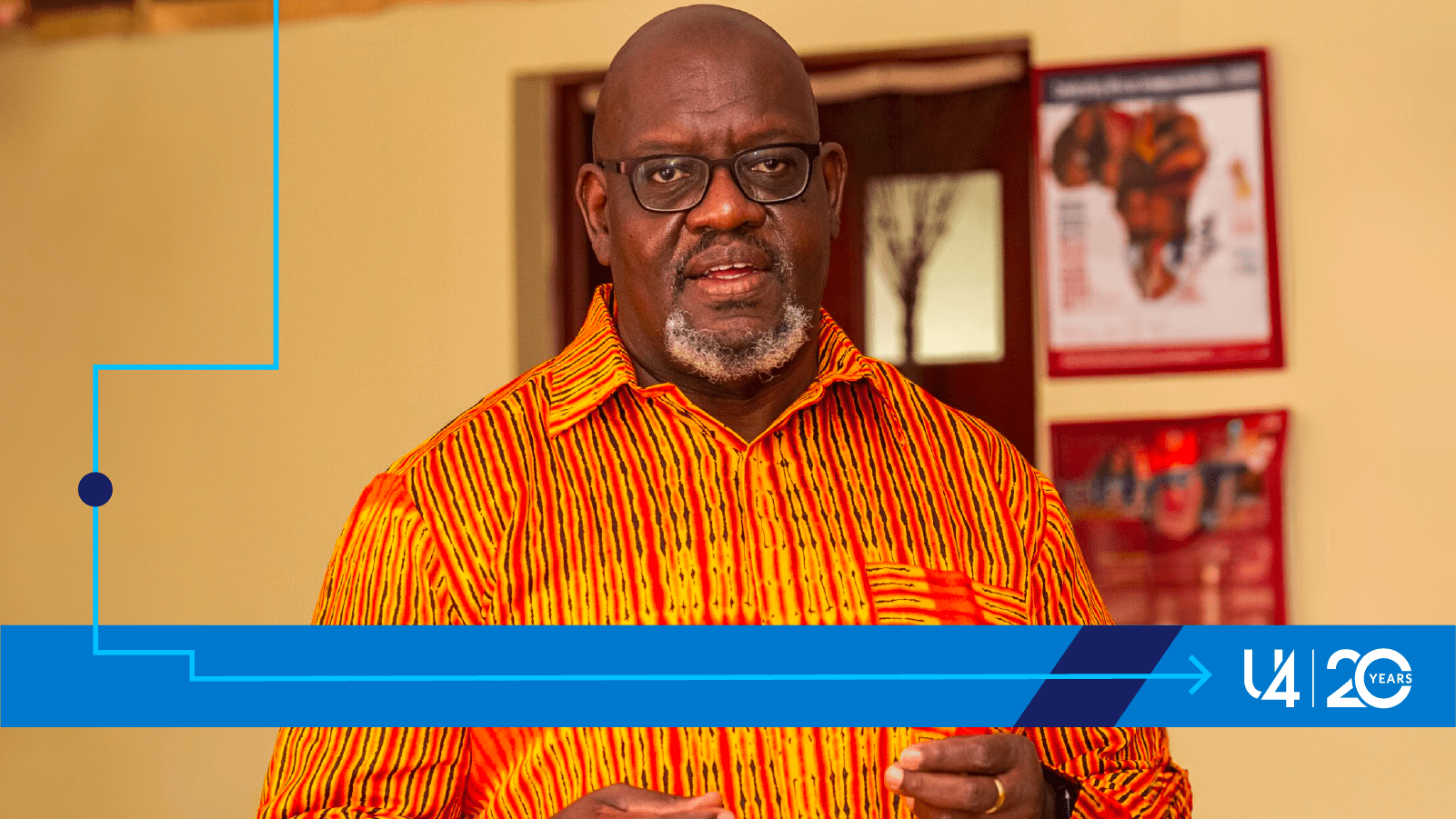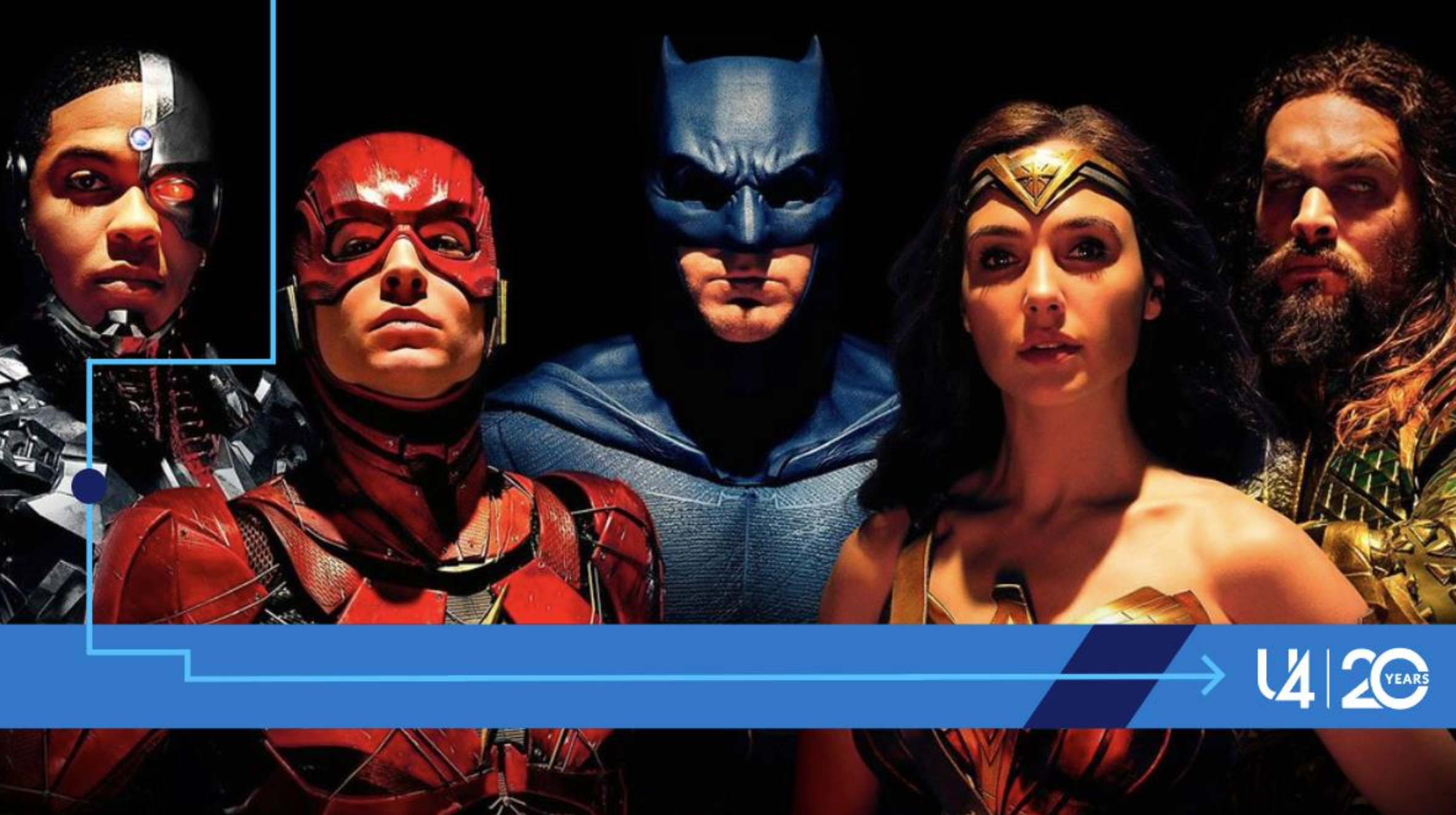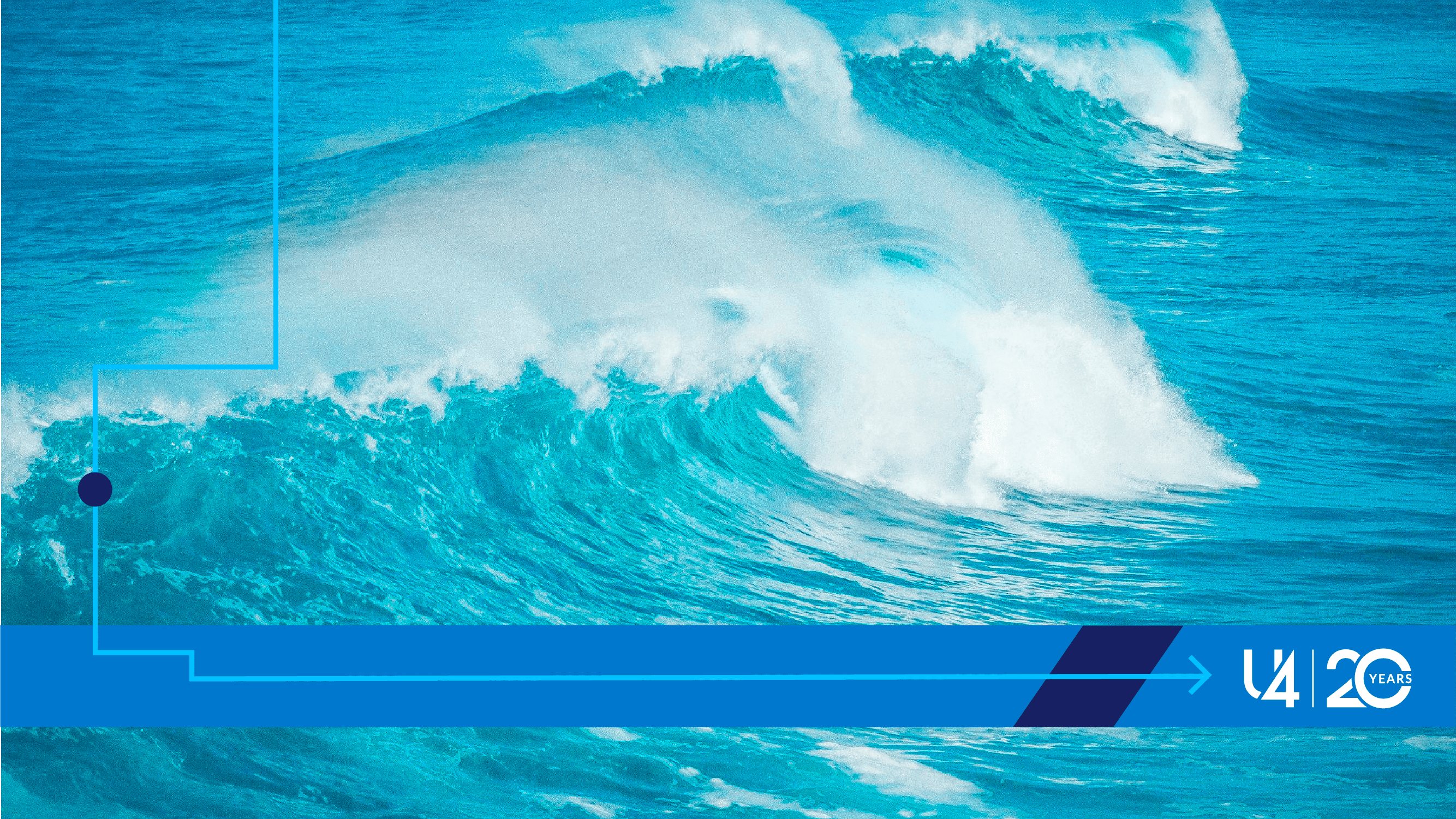Blog
Thirty years of anti-corruption: A personal reflection (part 1)

Corruption, however you define it, is so integral to the way human commercial and political affairs play out that you can discern its role in almost every major global development and geopolitical shift. This is as true now as it has been for the almost 30 years that I have been working in the anti-corruption field, motivated by the realisation that corruption could not be treated as peripheral to the question of development. There was a need for nuanced engagement in understanding what corruption was in different contexts and the factors that underpinned and influenced its existence and impact on people and the worlds in which they lived. I still hold this conviction, observing the ways in which competition between major and emerging newly confident powers in our multi-polar world is transforming the terrain in which anti-corruption work happens today.
I began my engagement in this field as the global consequences of the fall of the Berlin Wall in 1989, and the subsequent end to the Cold War, were beginning to become apparent. An intense burst of sunshine illuminated the behind-the-scenes statecraft that had obscured the adversarial geopolitics of the preceding era; not only on the world stage but also in many countries. Citizens of myriad African nations – many enjoying media and a host of other individual freedoms in a real way for the first time – were treated to graphic details of the excesses of elites who had ruled them during the Cold War. These details of corruption and human rights abuses became fodder for a fledgling political opposition, civil society, media, and other societal formations that previously had been repressed in many countries on the continent. As an active participant in the burgeoning movement that coalesced around the push for new freedoms and accountability from the state in Kenya, I witnessed the ways in which the sudden interest and engagement of Western nations and their aid agencies in this work benefited these formations.
It was an exciting time. As our interests coincided with those of these new-found allies, it became possible to leverage their support to move the work to a new level. For those of us who focused our work in the anti-corruption area, we were able to amplify the real-world consequences on the ground to the extent that a new age of outrage against corruption set in. Being able to be part of global and regional networks while focusing my own efforts at home enabled me to appreciate the extent to which world geopolitics were mirrored locally; as anti-corruption work took hold on the international stage, so too did we see it become an integral part of discourse in Africa. To this day, in nations in the Global South that hold elections – be they democratic or not – candidates invariably present the fight against corruption as one of their key policy offerings. Few things mobilise public opinion more effectively than the corruption of venal elites. The enthusiasm to punish them on the part of electorates and populations is almost always unrelenting.
Dreaming of a democratic, corruption-free world
In retrospect, I can say today that the modern era of anti-corruption work arrived in Africa and many other countries in the developing world in the 1990s, as a package defined using Western norms of liberal democracy, human rights, and an open economy. Within a decade, as it became central to the global development agenda with both the IMF and World Bank integrating ‘governance’ into their programmes, it was delivered to many nations of the Global South as conditionalities to loans and broad ‘reform’ programmes. Bilateral donors, led by what became the dynamic U4 grouping of female development cooperation ministers such as Hilde Johnson of Norway and Claire Short of the UK, articulated an even more ambitious global anti-corruption agenda for the Western aid sector. Civil society organisations like Transparency International and Global Witness were established in the early 1990s and proceeded towards a concerted international mobilisation of civic actors against corruption. Led by Peter Eigen, Transparency International mobilised the most far-reaching devolved civil society network dedicated specifically to anti-corruption in the world. By 2003, the United Nations Convention against Corruption was adopted by the UN General Assembly. Within another decade, a range of similar regional instruments had been promulgated.
A powerful Western normative hegemony thus dominated the field of anti-corruption across the world after the Cold War. In Africa, for example, the rash of freedoms that came with economic and political liberalisation were a huge shot in the arm, and as a result many economies showed steady growth from the mid-1990s. The economic stagnation of the 1980s lifted. Economic dynamism improved in ways that were visible to citizens, but, at the same time social inequality deepened. This contradiction, and the consequent disillusionment among populations, had immediate impacts on the political front: reforms that dramatically opened African politics ushered in a return of multi-party systems, with robust initiatives to bring in new liberal constitutions and presidential term limits in a majority of African countries.
The political transitions of that era were sometimes tumultuous, marked in some cases by the kind of coups we are witnessing across the Sahel today. We may have entered a similar period of political change in Africa, this time driven by youthful dissatisfaction with not only corrupt elites but, for a younger better educated populace, anger at incompetent leaders who have overborrowed with no apparent repayment plan and who are unable or too distracted to prioritise delivery of public goods like security, health, and education to their people. In the Sahel, we have seen the putschists derive their legitimacy in part from a powerful Pan-African narrative of African unity, sovereignty, and united self-reliance. I predict that we will see initiatives of different kinds emerge that challenge the norms that have prevailed for the past 30 years. We are in the middle of a new geopolitical shift, and we need to understand the implications for anti-corruption work in this era.
Democracy and good governance in decline
Today, the underlying assumptions to successful anti-corruption work – independent governance institutions, greater transparency and accountability in public life, regular elections and orderly political transition, a free media and civil society, respect for human rights – can no longer be taken for granted. The Western hegemony regarding anti-corruption work no longer holds, having gone the way of many other assumptions that underlaid the post-Cold War order. The liberalisation of the 1990s, and the rise of a multi-polar world made manifest by the rapid and hugely consequential rise of China and India as geopolitical actors, are partly responsible. The reordering of the world has been hastened by the West’s own contradictions and challenges, which have served to undermine the idea of liberal democracy in the Western mode as the ideal model of governance. Thirty years on, for Africans, the challenges of translating theory into practice are prompting more people into a much more critical engagement with the assumptions surrounding the initial embrace of not only liberal democracy but also the focus of anti-corruption work as it has been rolled out since the mid-1990s.
The rise of The Rest
The impact on anti-corruption work of the ‘rise of The Rest’ cannot be ignored. Indeed, the most geopolitically aggressive nations in the world today are not liberal Western-style democracies where anti-corruption in the European or American model prevails. In Africa, for example, it is Asia that is attracting a lot of our attention, as more people take note of a number of ‘well-governed’ non-democracies that are able to deliver public goods to huge sections of their populations without Western-style freedoms. By well governed, I mean that states like Singapore, China, and Vietnam are able to deliver public goods other than freedom. This idea of what characterises ‘good governance’ – delivery of essential services rather than simple accountability – is fuelling public sphere debates across the continent. The two, of course, should not be mutually exclusive, but the lived experience of many is that they seem to be. For them then, this ability of some highly organised authoritarian states to deliver the basics of livelihood to their populations outstrips the attraction of living in fledgling or compromised democracies, where the policymaking process is more inclusive but also slower and often more chaotic. If anti-corruption work in this era is to regain the momentum to motivate ordinary people, it must manifest a balance between ensuring delivery of essential services on one hand and accountability on the other.
Another urgent area of intervention is to honestly confront the crisis of legitimacy. Corruption is often couched in moral terms, but an urgent contest has set in, muddying the waters of anti-corruption work. This is not so much a contest against so-called Western values of democracy and human rights but rather against what is understood, especially by youth and especially in the Global South, as Western hypocrisy and double standards in the export of these values. The ‘international community’ of yesteryear meant an amorphous grouping of countries, NGOs, media organisations, and other agencies decisively led by the USA and the EU, and bolstered by key allies such as Australia, Canada, and New Zealand.
Not any more.
Read part 2 of John Githongo’s blog:
Discontent with democracy in Africa: What does it mean for anti-corruption?
John Githongo is publisher of theelephant.info and chair of Transparency International’s International Council. The views contained here are his own.
Disclaimer
All views in this text are the author(s)’, and may differ from the U4 partner agencies’ policies.
This work is licenced under a Creative Commons Attribution-NonCommercial-NoDerivatives 4.0 International licence (CC BY-NC-ND 4.0)


